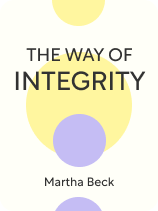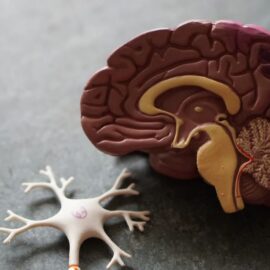

This article is an excerpt from the Shortform book guide to "The Way of Integrity" by Martha Beck. Shortform has the world's best summaries and analyses of books you should be reading.
Like this article? Sign up for a free trial here.
How does culture influence who you are? How does it impact your goals and your behaviors?
Sometimes your environment can make it hard for you to be yourself. Culture places certain expectations on people, and it can be difficult to stay true to what you really want and who you really are.
Keep reading to understand how it can be easy to lose yourself amid cultural pressures.
Cultural Influences on the Self
How does culture influence who you are and what you want? Even though accepting your personal knowledge, accepting your feelings, and spending time on what you love may sound easy, Beck argues it isn’t—because most people are not living in alignment with their nature. She explains that this happens because your nature may be out of alignment with your culture.
Beck argues that you grow up as a member of society where you consciously or unconsciously absorb messages about how to live and who to be. When you internalize these messages, they solidify into beliefs. As we’ll discuss, you may form beliefs about the “right” things for you to pursue in life and the “right” person to be, even if they aren’t true for your personal nature. When this happens, we create false beliefs. These false beliefs then pull you away from being aligned with your personal nature, which may want something else entirely.
(Shortform note: Throughout the book, Beck contrasts a deeper longing for a different life with the superficial desires you absorb from the culture around you. However, your deeper longing and superficial desires may not be as opposed as you think. In Radical Acceptance, Tara Brach argues that our superficial desires may give us clues as to our deeper desires. For example, if you fantasize about relationships, this may point to a deeper need for love and belonging. If you fantasize about positions of influence, this may point to a deep need to be heard. This stance does not contradict Beck’s claim that achieving your superficial goals won’t make you happy. Instead, it suggests that you can uncover your deeper yearnings by looking to these surface-level wants for clues.)
Beck identifies two ways culture may pull you out of alignment with your nature: You chase goals you don’t really want, and you try to be someone you’re not.
You Chase Goals You Don’t Really Want
Cultures often teach us what to want in life. Your culture may teach you that pursuing wealth, status, and “success” (however defined) will make you happy. Then you might put an enormous amount of effort into achieving those things only to find that they haven’t actually made you happier. That is because these goals are not necessarily aligned with your personal nature.
For example, an employee believes that becoming a manager would make them feel successful because this role is higher in their company hierarchy. However, deep down, they actually hate working with other people and would rather take a job where they complete projects independently. Because of the messages they’ve internalized from their work culture, this employee might spend years chasing that management position, only to feel miserable once they get it.
(Shortform note: Psychologists concur that most people are highly susceptible to peer influence when choosing their goals. People have a tendency to pursue what they see others pursuing, in a phenomenon called “goal contagion.” Psychologists say that people often acquire goals from those they admire or look up to, such as teachers, parents, or mentors. To determine if you’re following the right goals for yourself, psychologists encourage you to reflect on people in your life whom you admire, and ask yourself, “Are their goals really mine?”)
You Try to Be Someone You’re Not
Beck argues that you may absorb lessons from your culture about who has value and who does not. In an effort to be someone who has value, you may then try to change who you are to conform to this standard.
For example, someone might believe that they need to be physically attractive to have value. Then they spend all their time exercising and shopping for clothes when really they would rather be learning a musical instrument with that time. This causes them to be out of alignment because they pursue an image of themselves while rejecting the deeper motivations of their personal nature.
(Shortform note: In her theory of identity, Beck draws a sharp contrast between culture and nature. According to her theory, culture is a misleading force, and nature is our best source of guidance. However, not everyone agrees with this advice. Some argue that no one exists in isolation from other people—therefore, finding out who you really are is a process of looking outward rather than inward. They assert that you find yourself by imitating role models, taking on responsibilities, and connecting to communities instead.)
Exercise: Reflect on Your Inner Desires
Beck argues that one of the three most important parts of living with integrity is spending your time doing what you actually want to do. In this exercise, you’ll have a chance to reflect on what you’d like to do most and how to make time for it.
- Imagine a life of complete freedom without expectations from others. What would you spend your time doing if you could spend your time any way you wanted?
- Now that you have identified some ways that you would like to spend your time, ask yourself: How much time in an average week do you spend doing these things?
- Reflect on what’s keeping you from doing these things more often. What would it take to spend more time doing what you actually want to do?

———End of Preview———
Like what you just read? Read the rest of the world's best book summary and analysis of Martha Beck's "The Way of Integrity" at Shortform.
Here's what you'll find in our full The Way of Integrity summary:
- How to know if you're living in alignment with your true self
- How messages from our culture tell us to chase things we don't really want
- The four stages of realigning your life to find happiness






